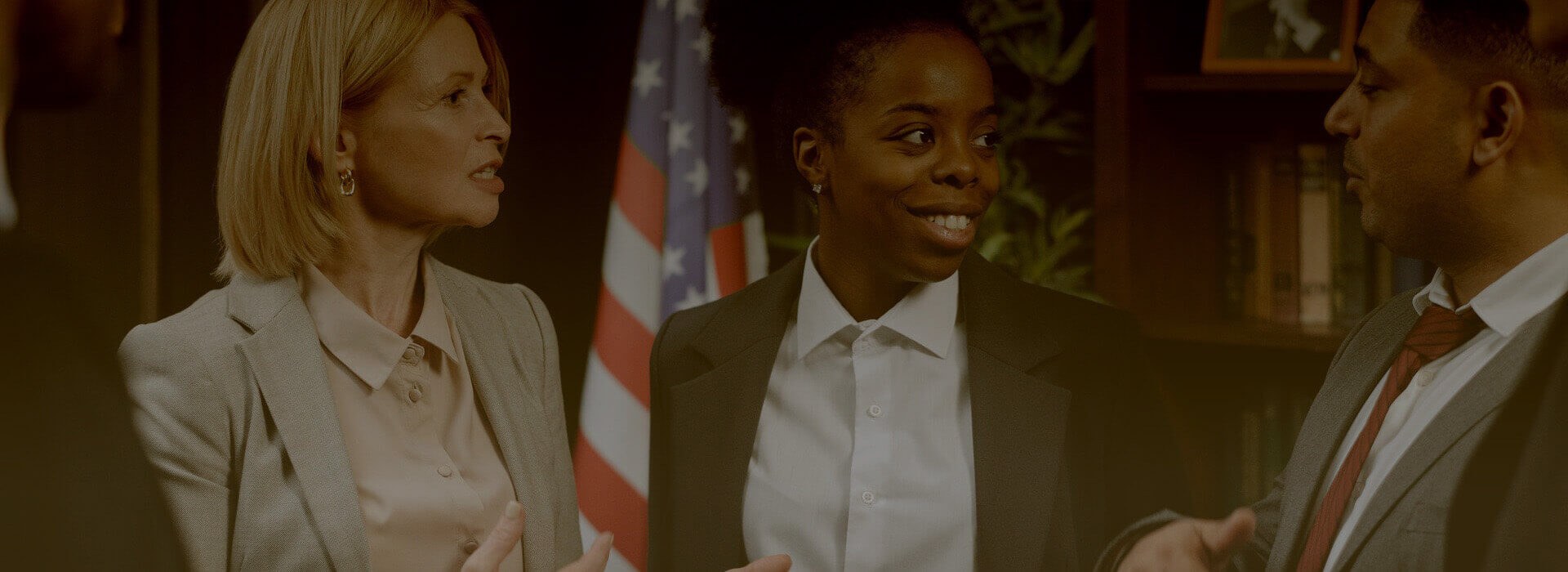Being arrested for driving while intoxicated (DUI) can make you feel anxious and perplexed. But since police are only human, it could benefit you to know that they occasionally make mistakes that cast doubt on the legality of your arrest, the possibility of charges against you, and the result of your case.
These typical mistakes can happen prior to, during, or following a DUI arrest. These errors may have an impact on how your case is handled.
Common errors made by police officers during DUI arrests include failing to follow protocol, interpreting field sobriety test results improperly, and giving Breathalyzer tests to the wrong people.
Understanding these potential mistakes will help you better grasp your legal rights. Should you be charged with DUI and believe the police erred, the repercussions could have a significant impact on your DUI case.
Since knowledge is empowering, being aware of potential problems will enable you to defend your legal rights.
An ADUI defense attorney can spot infractions of the law and procedure, spot errors made by the police, stand up for you during the trial, and contest the charges or supporting documentation.
The Timeline of a DUI Arrest
When a police officer pulls over a driver for a traffic infraction or suspect driving, the arrest usually starts. Because of the driver’s driving style, the odor of alcohol, or other indicators of impairment when speaking or watching the person, the officer may have reason to believe that the person is intoxicated.
If a police officer has reason to suspect that a driver is drunk, they may decide to administer Breathalyzer and field sobriety tests. The police officer will make an arrest if the evidence indicates that the driver is impaired by drugs.
Recall your legal rights if you are arrested for DUI. This covers the option for you to turn down a field sobriety test. This might make the officer even more suspicious, but you don’t have to admit guilt. (Many state laws mandate that in this case, a person’s failure to cooperate automatically results in their arrest.) You can also make an attorney’s appointment.
Should the police infringe against these fundamental rights while you are being held, the result of your case may be affected.
You are protected by the Constitution, and any infringement on your legal rights gives you the right to defend yourself. But you need a DUI attorney to recognize these rights violations and comprehend how they affect your DUI case.
You might not be aware of the officer violating your rights if, when, or how during the commotion and chaos of a DUI arrest.Selecting a skilled criminal defense lawyer can assess your case and the circumstances before and after an arrest to ascertain whether the police officer’s actions resulted in any legal problems.
Make An Appointment For A Free Consultation
Common Mistakes the Police Make During DUI Arrests
During a DUI arrest, police officers are prone to mistakes at different stages. A lot of these errors are caused by poor or insufficient training, disregarding correct arrest protocols, interpreting field sobriety test results incorrectly, or administering Breathalyzer testing incorrectly.
A lawyer can identify possible defenses since they have a thorough understanding of these frequent errors.
Inadequate or Improper Training
Unintended errors in DUI arrests may result from inadequate or inappropriate law enforcement training. Officers who have received the necessary training are guaranteed to handle situations professionally, recognize intoxication indications with accuracy, and administer sobriety and Breathalyzer tests in a reliable, law-abiding manner.
Errors due to inadequate training could compromise the legitimacy of the arrest. You have the option to contest the accusations against you if you think the police made mistakes during your DUI arrest.
Significant mistakes can be made as a result of inadequate training, such as failing to identify impairment indicators or administering and interpreting tests incorrectly. These errors may result in incorrect judgments and, eventually, unfair arrests.
For instance, a police officer with insufficient training could misinterpret a person’s physical impairment or medical condition as an indication of intoxication. An officer may give a field sobriety or Breathalyzer test wrongly due to inadequate training, producing findings that are erroneous or untrustworthy.
These mistakes may have serious repercussions, such as unjustified prosecutions and arrests. In a DUI case, being aware of these potential weaknesses might help you put together a compelling defense.
Following your DUI arrest, give a DUI lawyer a call right away. They will carefully consider your case and all of its details, looking for any indications of insufficient training in the officer’s actions.
Failure to Follow Proper Arrest Procedures
When making a DUI arrest, officers are required by law to follow certain guidelines. This framework makes sure they follow the law, respect people’s rights, and preserve the integrity of the evidence.
Ignorance of these protocols may have legal repercussions and jeopardize the arrest process. You have the right to contest the charges and supporting documentation if you were the victim of an unlawful arrest.
A police officer must conduct a traffic stop and have a reasonable suspicion that a driver is under the influence of drugs before they may make an arrest. If the officer’s observations lead them to assume the driver is impaired by alcohol or drugs, they may choose to provide a Breathalyzer test or perform a field sobriety assessment after evaluating the circumstances.
The officer is required to give the suspect their Miranda rights as soon as they decide to initiate an arrest. The officer should notify the driver that their license will be suspended if they refuse to take the Breathalyzer or fail the test. These procedures must be strictly followed by the arresting officer because any deviation could result in legal problems that you could utilize against them.
Neglecting to adhere to these protocols may result in dire ramifications. For instance, the court may suppress evidence that the officers gathered during the arrest, such as field sobriety and Breathalyzer test results, if they did not follow the proper procedure. If the court doesn’t get this crucial proof, it might drop all of the charges against you.
If an officer disregards your Miranda rights, they may refuse to accept your statements as proof, which could result in the charges against you being dropped or reduced.
Misinterpretation of Field Sobriety Test Results
Police frequently use field sobriety tests to assess driver impairment. The accuracy of the outcome may be impacted by the officer’s interpretation and other circumstances.
Three assessments are commonly used in field sobriety tests: the one-leg stand, the walk-and-turn, and the horizontal gaze nystagmus. These examinations check for deficits in balance, focus, and eye movement, which may be signs of drug or alcohol use. The test’s effectiveness can be influenced by a variety of things.
Results of a field sobriety test can be misinterpreted due to bias on the part of the officer, a lack of training, or even the physical and general health of the defendant. It is not alcohol that could cause a suspect to falter on a one-leg stand, for example, but rather a physical impairment. The accuracy of these tests can also be impacted by the state of the roads, footwear, and weather.
These misunderstandings may result in unjustified prosecutions and erroneous arrests. The prosecution’s entire case could be jeopardized by a lawyer who contests the results of the field sobriety test.Engage the services of a lawyer who can assess how the test was administered and refute its correctness in order to defend you against a DUI arrest.
Improper Administration of Breathalyzer Tests
The Breathalyzer test determines a person’s blood alcohol level. Although the results are important proof in DUI trials, they can contain a number of mistakes.
An estimate of a person’s blood alcohol content is obtained by measuring the amount of alcohol in their breath using a Breathalyzer test. To obtain an accurate reading, a police officer has to calibrate and operate the instrument correctly.
Inaccurate calibration, careless handling, or police abuse can all lead to errors. Before giving the test, the police officer must also observe the suspect for a while because the findings may vary if the person has recently drunk alcohol, vomited, or belched.
When pursuing DUI charges against someone, Breathalyzer findings are frequently important evidence, and errors can have a big impact on the case against you. DUI charges may be dropped if a lawyer can demonstrate that the Breathalyzer results are faulty. When facing a DUI-related allegation, it is imperative to have a defense lawyer who understands how to spot and refute these mistakes.
The Consequences of Police Mistakes in DUI Arrests
Errors made during DUI arrests can have a significant impact on the person’s life and the outcome of the case. These mistakes may be overlooked by a DUI defense attorney, which may result in the suppression of evidence, the dropping of charges, or a more advantageous plea agreement. It has the power to totally alter the case’s result.
Police errors might make the difference between a criminal conviction and a clean record for the person facing DUI charges. An individual’s driving rights, immigration status, future career prospects, and driving privileges can all be significantly impacted by a criminal record. Errors may eventually be discovered, but the stress of the arrest and the stigma of a DUI charge never go away.
Hire a Lawyer Immediately Following a DUI Arrest
The result of your DUI case may significantly change if you have legal representation from the time of your arrest. A skilled DUI lawyer can search for and spot mistakes, contest their legitimacy, and stand up for your rights.
Knowing how often these errors happen, seasoned DUI defense attorneys work to defend their clients’ rights against unfair and mistaken police actions. Without legal counsel, you could not be aware of any errors made by the police during your arrest and could be subject to harsh consequences, such as fines and jail time.
How to Challenge a DUI Arrest Based on Police Mistakes
You must be aware of the legal procedure, the required proof, and the possible results in order to contest a DUI arrest. Usually, the procedure starts with a pre-trial hearing where your lawyer can point out errors made by the police and file petitions to suppress evidence or drop charges.
Your attorney may offer expert testimony or conduct a cross-examination of the arresting officer. Eyewitness testimony, medical documents, Breathalyzer calibration records, and police body or dashcam video footage of the arrest are examples of pertinent evidence.
A successful appeal to your DUI arrest may result in the suppression of important evidence, the removal of the charges, or a better plea agreement. You can manage legal complexity and strive toward the best possible resolution for your case by collaborating with an expert DUI defense lawyer.
An accomplished criminal defense lawyer can take advantage of the mistakes made by police personnel in order to your benefit.

